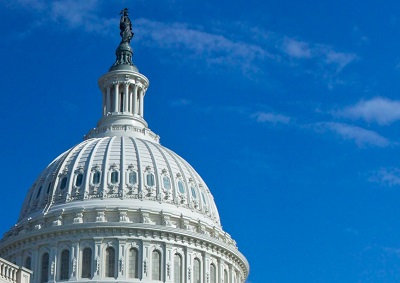U.S. Senate Committee Backs Russia Energy Bills
WASHINGTON (Reuters) - Underscoring U.S. lawmakers' continuing unhappiness with Russia, a Senate committee on Wednesday advanced legislation seeking to hamper Russian energy pipelines.

The Senate Foreign Relations Committee approved four energy bills, including the "Energy Security Cooperation with Allied Partners in Europe Act of 2019," which opposes Russia's Nord Stream 2 pipeline, encourages NATO countries not to buy Russian gas and expedites U.S. natural gas exports.
The bill also calls on President Donald Trump to impose sanctions under existing law for sales of equipment or investment used for the construction of Russian energy export pipelines.
That vote, like the others, sent the act to the full Senate, but there has been no indication yet of when the chamber's Republican leaders would allow votes given the crowded schedule as the year nears its close.
The legislation must pass the full Senate and House of Representatives before they can be sent for Trump to sign into law or veto.
Lawmakers, including some of Trump's fellow Republicans, have been pushing the president to take a harder stance against Russia over election interference, aggression toward Ukraine and involvement in Syria's civil war.
The committee also approved an act directing the State Department to prioritize assistance in developing European energy infrastructure.
And it passed legislation that would require State to determine whether Russia should be designated a state sponsor of terrorism, as well as a measure requiring congressional approval if the president seeks to withdraw from NATO.
The committee did not consider the Defending American Security from Kremlin Aggression Act, known as DASKA, introduced in February by Republican Senator Lindsey Graham and Bob Menendez, the top Democrat on the foreign relations panel. Graham dubbed DASKA the sanctions bill "from hell" because it would impose strict and broad penalties.
Targets of DASKA sanctions would include: Russian banks that support efforts to interfere in foreign elections; the country's cyber sector and new sovereign debt. It also would impose strict measures on Russia's oil and gas sector.
Senate aides said the committee delayed DASKA because Graham was chairing a Judiciary Committee hearing and unable to attend the Foreign Relations meeting.
Republican Senator Jim Risch, the foreign relations committee's chairman, said the panel would consider it next week. Aides said that could slip into 2020, as lawmakers are due to leave next week for their year-end holiday recess.
ClearView Energy Partners analyst Kevin Book said he did not regard the bills passed on Wednesday as having significant impacts on energy, "but we regard their collective passage as a signpost of continuing congressional anti-Russia sentiment."

- Kinder Morgan Proposes 290-Mile Gas Pipeline Expansion Spanning Three States
- Valero Plans to Shut California Refinery, Takes $1.1 Billion Hit
- Three Killed, Two Injured in Accident at LNG Construction Site in Texas
- Tallgrass to Build New Permian-to-Rockies Pipeline, Targets 2028 Startup with 2.4 Bcf Capacity
- TC Energy Approves $900 Million Northwoods Pipeline Expansion for U.S. Midwest
- U.S. Pipeline Expansion to Add 99 Bcf/d, Mostly for LNG Export, Report Finds
- Enbridge Adds Turboexpanders at Pipeline Sites to Power Data Centers in Canada, Pennsylvania
- Great Basin Gas Expansion Draws Strong Shipper Demand in Northern Nevada
- Cheniere Seeks FERC Approval to Expand Sabine Pass LNG Facility
- Heath Consultants Exits Locate Business to Expand Methane Leak Detection Portfolio




Comments